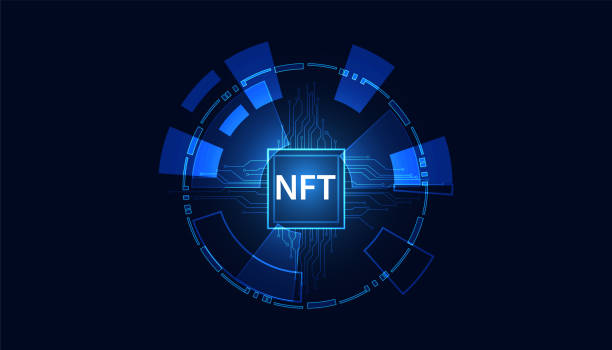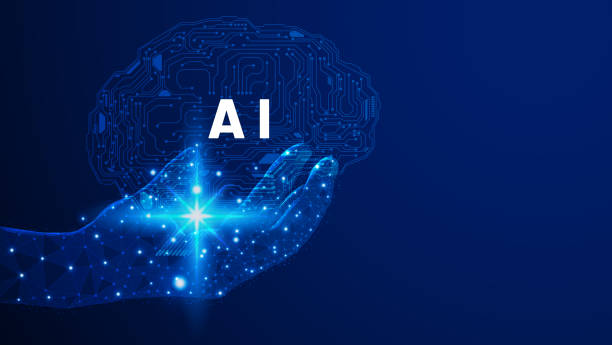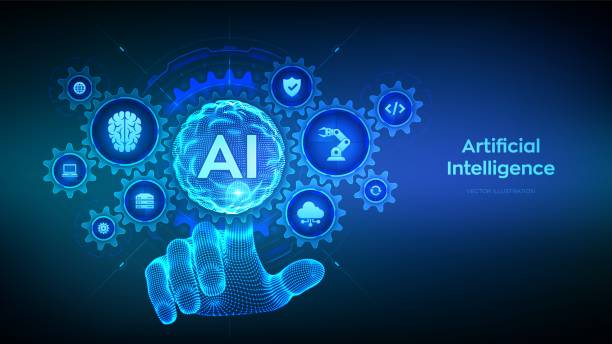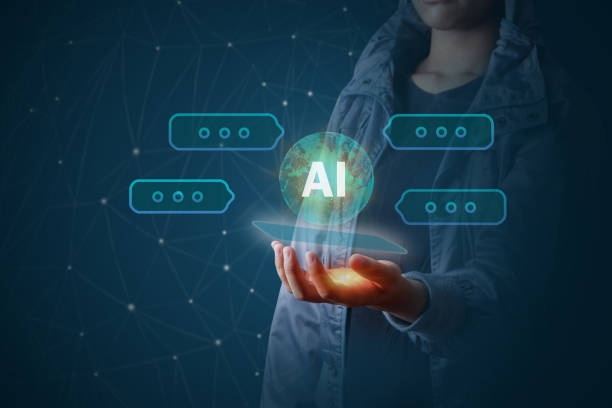AI in Your Hands: What are Mobile AI Applications and What are their Uses?

In today’s world, #Artificial_Intelligence (AI) is rapidly penetrating various aspects of our lives.
One of the most significant manifestations of this progress is the emergence of mobile AI applications.
These applications, using complex algorithms, are capable of performing tasks that were previously only possible by humans.
Common applications include facial recognition, language translation, answering questions, content generation, and even providing consulting services.
Mobile AI applications allow users to leverage the power of artificial intelligence anytime, anywhere, without the need for expensive hardware or special technical expertise.
With the increasing proliferation of this technology, mobile AI applications are expected to play an even more significant role in our daily lives.
Today, mobile AI applications have become an essential tool for many individuals, as they enable them to perform various tasks with greater efficiency and accuracy.
Does your current e-commerce website design not generate the expected sales for you?
Rasawb is an expert in professional e-commerce website design!
✅ An attractive and user-friendly website aimed at increasing sales
✅ High speed and security for an ideal shopping experience⚡ Get a free consultation for online store design with Rasawb!
Types of Mobile AI Applications: Categorization by Use Case

Mobile AI applications can be divided into different categories based on their uses.
One of the most common categories is Natural Language Processing (NLP) applications, which are capable of understanding and generating human language.
These applications are used in areas such as language translation, speech recognition, question answering, and text generation.
Another category of applications operates in the field of Computer Vision and is capable of detecting objects, faces, and scenes in images and videos.
These applications are used in fields such as security, autonomous vehicles, and medical diagnosis.
Additionally, there are applications that operate in the field of Machine Learning and are capable of learning from data and predicting outcomes.
These applications are used in areas such as marketing, finance, and healthcare.
Mobile AI applications are constantly expanding, and their categorization changes over time.
One of the main advantages of mobile AI applications is their ability to provide personalized solutions.
By analyzing user data, these applications can offer suggestions and recommendations tailored to individual needs and preferences.
Introducing the Most Popular Mobile AI Applications: Review of Features and Capabilities

Currently, a variety of mobile AI applications are available, each with its own unique features and capabilities.
Some of the most popular applications include Google Assistant, Siri, Alexa, Microsoft Cortana, and FaceApp.
Google Assistant and Siri are intelligent voice assistants capable of answering questions, performing tasks, and controlling smart devices.
Alexa is also an intelligent voice assistant primarily used in Amazon Echo devices.
Microsoft Cortana is an intelligent voice assistant used in Windows devices.
FaceApp is a photo editing application that uses AI to change people’s faces in photos.
Each of these mobile AI applications has its own strengths and weaknesses, and choosing the best application depends on the user’s needs and preferences.
Mobile AI applications are constantly improving, and new features are being added to them.
Choosing a suitable mobile AI application plays an important role in increasing productivity and improving the quality of life.
| Application Name | Type | Key Features |
|---|---|---|
| Google Assistant | Voice Assistant | Answering questions, performing tasks, controlling smart devices |
| Siri | Voice Assistant | Answering questions, performing tasks, controlling smart devices |
| FaceApp | Photo Editing | Changing faces in photos using AI |
How to Use Mobile AI Applications: A Step-by-Step Guide

Using mobile AI applications is usually very easy.
Most of these applications have simple and intuitive user interfaces that allow users to interact with them easily.
To use these applications, you must first download and install them from app stores.
After installation, you typically need to create a user account and enter the required information.
Then, you can use the various features and capabilities of the application.
Some applications require access to your personal information, such as location, contacts, and images.
In this case, you must grant the necessary permissions to the application.
Also, you should note that using mobile AI applications may increase your phone’s battery consumption.
However, the benefits of using mobile AI applications often outweigh their drawbacks.
Does your current website display your brand’s credibility as it should? Or does it scare away potential customers?
Rasawb, with years of experience in designing professional corporate websites, is your comprehensive solution.
✅ A modern, beautiful website aligned with your brand identity
✅ Significant increase in lead generation and new customers
⚡ Contact Rasawb now for a free corporate website design consultation!
Advantages and Disadvantages of Mobile AI Applications: A Closer Look

Mobile AI applications have numerous advantages and disadvantages.
The advantages of these applications include increased productivity, time-saving, personalized service, improved quality of life, and easy access to information.
For example, a mobile AI application can help you perform your daily tasks faster and easier, quickly find the information you need, and make better decisions.
However, alongside these advantages, mobile AI applications also have disadvantages.
These disadvantages include issues related to privacy, battery consumption, internet dependency, and the possibility of errors.
For example, some applications collect and store your personal information, which may be concerning to you.
Also, some applications require an internet connection to function, which may be problematic in some situations.
Therefore, before using mobile AI applications, you should carefully consider their pros and cons.
By considering the advantages and disadvantages of mobile AI applications, users can make more informed decisions about using this technology.
Privacy and Security in Mobile AI Applications: What to Consider?

One of the most important concerns regarding mobile AI applications is issues related to privacy and security.
Many of these applications collect and store your personal information, which may be concerning to you.
To protect your privacy and security when using these applications, you should observe the following points.
Firstly, before installing any application, carefully review its requested permissions and only grant those that are essential.
Secondly, use reputable and well-known applications and avoid installing suspicious and unknown applications.
Thirdly, carefully check the privacy settings of the applications and adjust them according to your preferences.
Fourthly, use a strong password for your user account and change it regularly.
Fifthly, avoid connecting to public and unsecured Wi-Fi networks.
By observing these points, you can largely protect your privacy and security when using mobile AI applications.
Mobile AI applications are constantly advancing, and privacy and security issues are becoming more complex over time.
Awareness of potential risks and taking preventive measures are essential for maintaining security and privacy when using mobile AI applications.
The Future of Mobile AI Applications: What to Expect?

The future of mobile AI applications looks very bright and promising.
With the rapid advancement of AI technology, these applications are expected to improve in various areas and gain new features.
For example, mobile AI applications are expected to be able to better understand human language, analyze images and videos with greater accuracy, make better decisions, and provide more personalized services.
Also, these applications are expected to find applications in new areas such as health, education, transportation, and entertainment.
For example, a mobile AI application could help doctors diagnose diseases, assist students in learning course material, help drivers drive more safely, and help individuals find entertaining content.
Mobile AI applications will play a more significant role in our daily lives.
Given the rapid pace of technological advancement, it is difficult to accurately predict the future of mobile AI applications, but it can be confidently said that this technology will increasingly integrate into our lives.
| Field | Potential Application |
|---|---|
| Health | Disease diagnosis, medical consultation, medication management |
| Education | Personalized learning, feedback provision, performance evaluation |
| Transportation | Autonomous driving, optimal navigation, traffic management |
Developing Mobile AI Applications: Challenges and Solutions

Developing mobile AI applications comes with several challenges.
One of the most important challenges is the limited hardware resources of mobile devices.
Mobile AI applications typically require heavy processing and significant memory, which can be constrained on mobile devices.
Another challenge is the lack of training data.
Training AI models requires a large amount of training data, which can be difficult to collect and prepare.
Also, issues related to privacy and security are among the challenges of developing these applications.
Various solutions can be used to overcome these challenges.
For example, model compression techniques can be used to reduce their size, federated learning can be used to train models on distributed data, and privacy-preserving techniques can be used to protect user information.
Mobile AI applications are advancing, and new solutions are being offered to overcome their challenges.
Success in developing mobile AI applications requires a deep understanding of the technical and ethical challenges of this technology.
Are you tired of your company’s website not meeting your expectations? With Rasawb, design a professional website that truly represents your business.
✅ Increased acquisition of new customers and sales leads
✅ Increased credibility and trust in your brand among your audience
⚡ Get a free website design consultation!
Choosing the Right Mobile AI Application: What Factors to Consider?

Choosing the right mobile AI application depends on your needs and preferences.
Before choosing an application, you should consider the following factors.
Firstly, define the application’s purpose.
For what purpose do you want to use this application? Are you looking for a voice assistant, a photo editing application, or a language translation application? Secondly, review the application’s features and capabilities.
Does the desired application have the features and capabilities you need? Thirdly, read user reviews.
What experience have other users had with this application? Fourthly, consider the application’s price.
Is the application free or paid? Is it worth the cost? Fifthly, review privacy and security issues.
Does the application collect and store your personal information? By considering these factors, you can choose the right mobile AI application for yourself.
Mobile AI applications are very diverse, and choosing the best application can be difficult.
By carefully reviewing key factors, you can choose a mobile AI application that best meets your needs.
Mobile AI Applications and Their Impact on Daily Life

Mobile AI applications have a significant impact on our daily lives.
These applications help us perform our daily tasks faster and easier, quickly find the information we need, and make better decisions.
For example, an intelligent voice assistant can help us with tasks such as setting reminders, sending text messages, and playing music.
A language translation application can help us communicate with people around the world.
A photo editing application can help us improve the quality of our photos.
Mobile AI applications help us in various areas and improve our lives.
Mobile AI applications are constantly advancing, and their impact on our daily lives is growing day by day.
The integration of mobile AI applications into daily life opens up new opportunities for improving productivity, accessing information, and communicating with others.
Frequently Asked Questions
| Question | Answer |
|---|---|
| What is a mobile AI application? | It is software that uses artificial intelligence technologies (such as machine learning, natural language processing, computer vision) on a mobile device to perform tasks, personalize user experience, or automate processes. |
| Name a few examples of these applications. | Voice assistants (such as Siri, Google Assistant), facial recognition programs, smart keyboards, AI-powered photo editors, and translation applications. |
| What are the advantages of mobile AI applications? | Enhanced user experience, personalized services, task automation, improved accessibility, and providing offline capabilities for some AI features. |
| What are the challenges in developing these applications? | Limitations in processing power and battery life of mobile devices, data privacy concerns, optimizing the size of AI models, and the need for continuous updates. |
| How do these applications process data (on-device or cloud)? | Some process locally (on-device) for speed and privacy, others send data to the cloud for processing, and often a hybrid approach is used. |
| What technologies are typically used in them? | Machine Learning (ML), Deep Learning (DL), Natural Language Processing (NLP), Computer Vision (CV), and Speech Recognition. |
| What impact do they have on daily life? | Simplifying tasks, improving communications, enhancing entertainment, providing personalized recommendations, and contributing to smarter living. |
| What is “Edge AI” in the mobile context? | It refers to running AI models directly on the mobile device (at the “edge” of the network) instead of sending data to a central cloud server. |
| What is the future trend for these applications? | More powerful on-device AI, deeper integration with Augmented Reality (AR), hyper-personalization, and greater emphasis on ethical AI and privacy. |
| Are mobile AI applications always online? | No, many modern applications use on-device AI for core functionalities, allowing them to work offline or with limited connectivity, although some features may require internet. |
And other services of Rasawb Advertising Agency in the field of advertising
- Smart Sales Automation: An effective tool for online growth with custom programming.
- Smart Google Ads: Designed for businesses looking to increase click-through rates through optimizing key pages.
- Smart Digital Advertising: A new service to increase website traffic through SEO-driven content strategy.
- Smart Digital Branding: Designed for businesses looking to increase click-through rates through marketing automation.
- Smart Advertising Campaign: Transform user engagement with precise audience targeting.
And over hundreds of other services in the field of internet advertising, advertising consulting, and organizational solutions
Internet Advertising | Advertising Strategy | Advertorials
References
Review of the Best Mobile AI ApplicationsGuide to Choosing AI Applications for PhonesLatest AI Trends in Mobile ApplicationsComprehensive Reference for Mobile AI Applications
? Are you ready to leap your business forward in the digital world? Rasawb Digital Marketing Agency, specializing in e-commerce website design, SEO, and advertising campaign management, is your trusted partner for reaching the pinnacle of online success. With a strategic and innovative approach, we will create a powerful and profitable presence for you.
📍 Tehran, Mirdamad Street, next to Bank Markazi, Kazerun Jonubi Alley, Ramin Alley, No. 6



